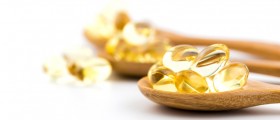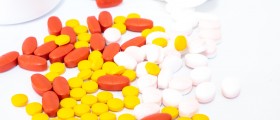
Copper
Absorption of copper
Deficiency of copper, or hypocupremia, is a very rare condition that is most commonly found in patients with nephrosis, Wilson’s disease and protein energy malnutrition. It may also be present in infants fed for long periods solely on cow’s milk. However, taking too much vitamin and mineral supplements, Vitamin C, Iron or Zinc, may result in body’s inability to absorb Copper.
Copper deficiency
Balance of copper in the body can be upset by excessive intake of high fiber foods, iron or vitamin C. All of them may interfere with way the body metabolizes the copper. Deficiency of copper provokes depletion of oxygen in the cells, lowered levels of HDL cholesterol, skin problems, especially poor skin tissue formation, ruptured blood vessels, osteoporosis, joint abnormalities, swollen ankles, anemia, loss of hair, and formation of dark patches on the skin. Other symptoms may include auditory hallucinations and depression. Binge eaters normally have lower levels of copper in their body.
Large doses of Zinc, Vitamin C and iron may also provoke symptoms of overdose. Large amounts of Zinc provoke gastrointestinal problems, hair loss, anemia, cramps, kidney problems, dizziness and nausea. Excessive intake of Vitamin C may cause diarrhea, vomiting and abdominal cramps. Too much iron leads to dehydration, low blood sugar, drowsiness, fever and gastrointestinal problems.
Before using supplements, it is important to check how much supplements one can take and not to interfere the proper absorption of Copper.
Benefits of copper
Copper is vital to proper health. A powerful antioxidant helps to remove free radicals and prevent cell mutations and cancer. It may also help to reduce pain associated with arthritis. Copper also helps oxidation of glucose and releasing the energy. It aids the thyroid gland in balancing hormones and increases the body’s energy levels by carrying oxygen to the bloodstream. It is essential in process of making red blood cells and the synthesis of hormone adrenaline.
Sources of copper
Copper is found in many foods including the whole grain cells, legumes, oysters, organ meats, cherries, dark chocolate, fruits, leafy green vegetables, nuts, poultry, prunes, soybeans, organ meats, shellfish, nuts and legumes.

















Your thoughts on this
Loading...